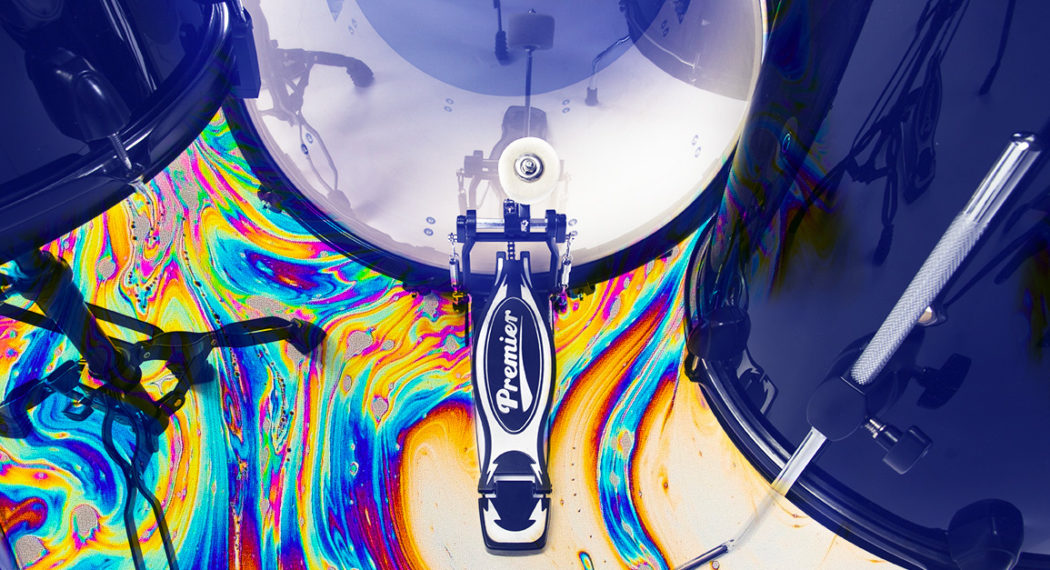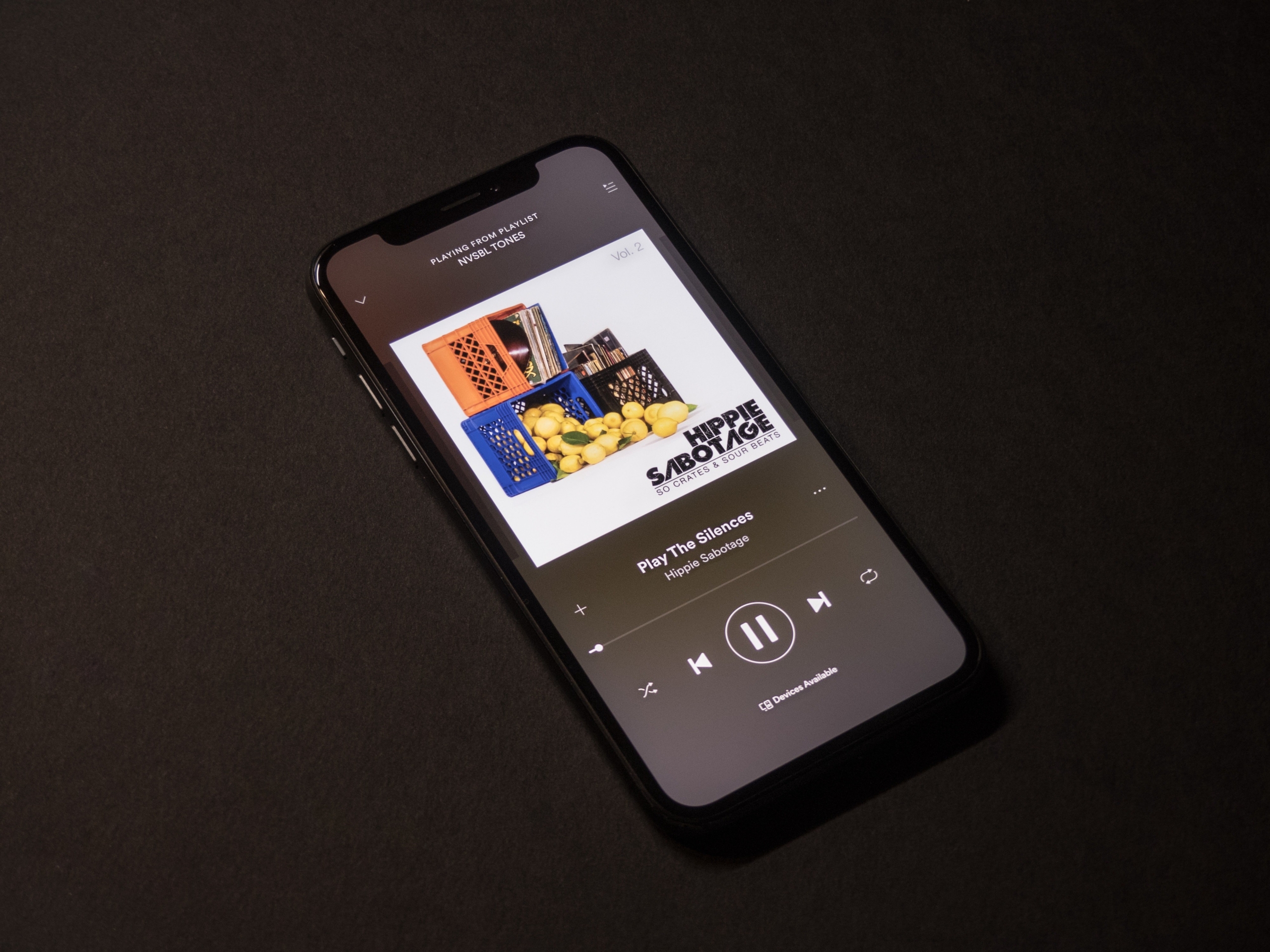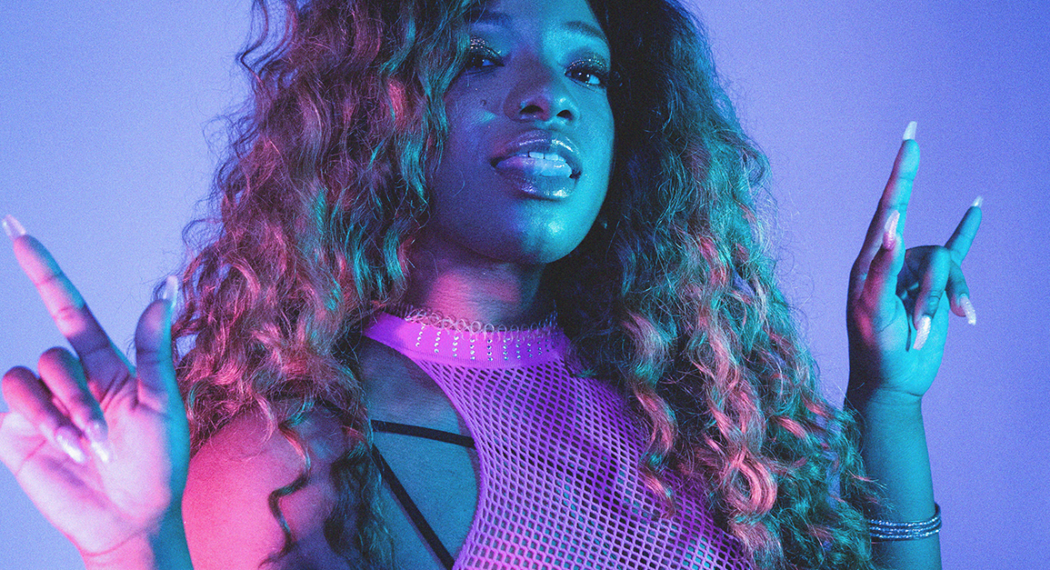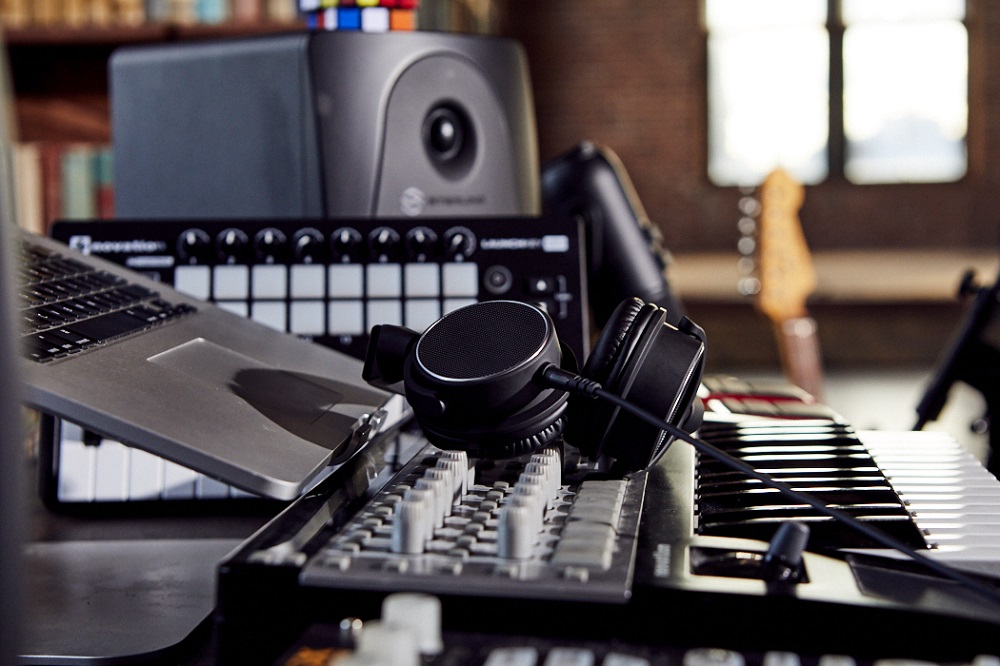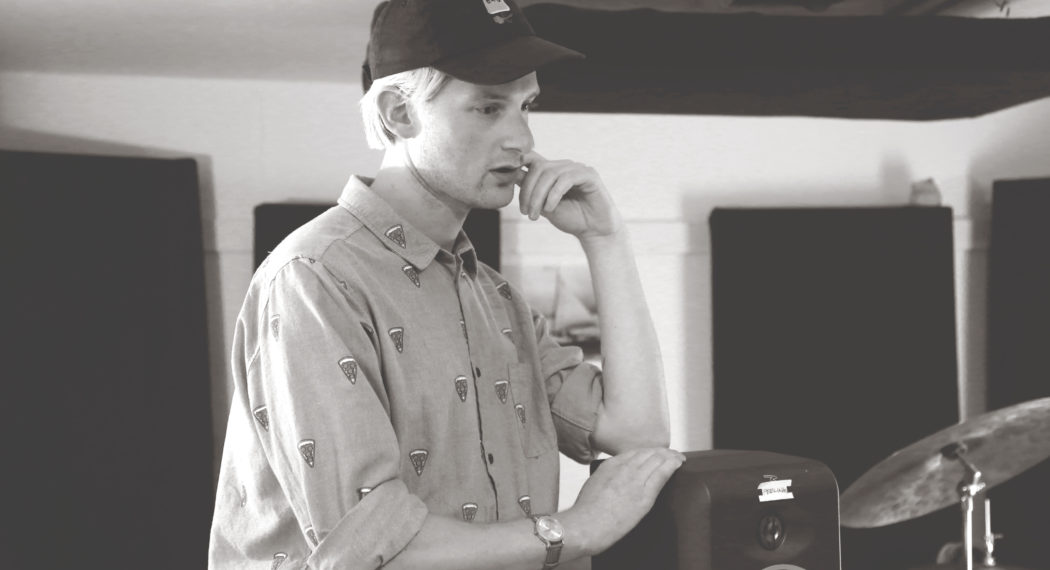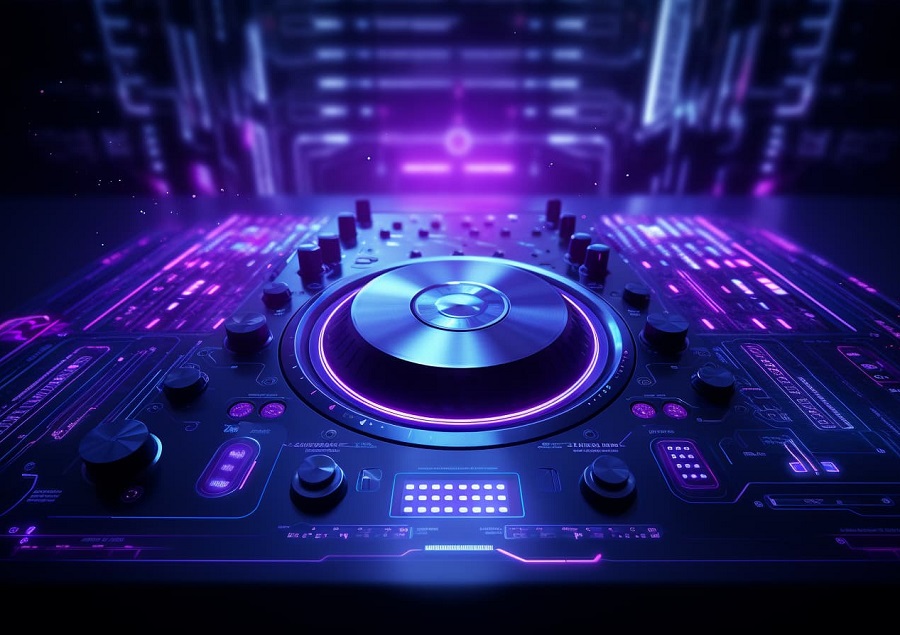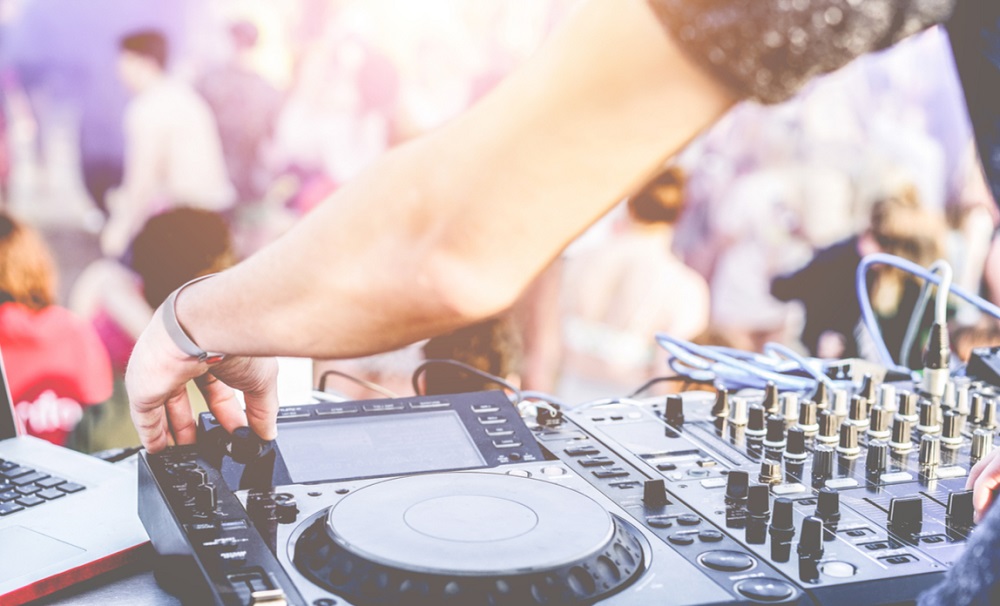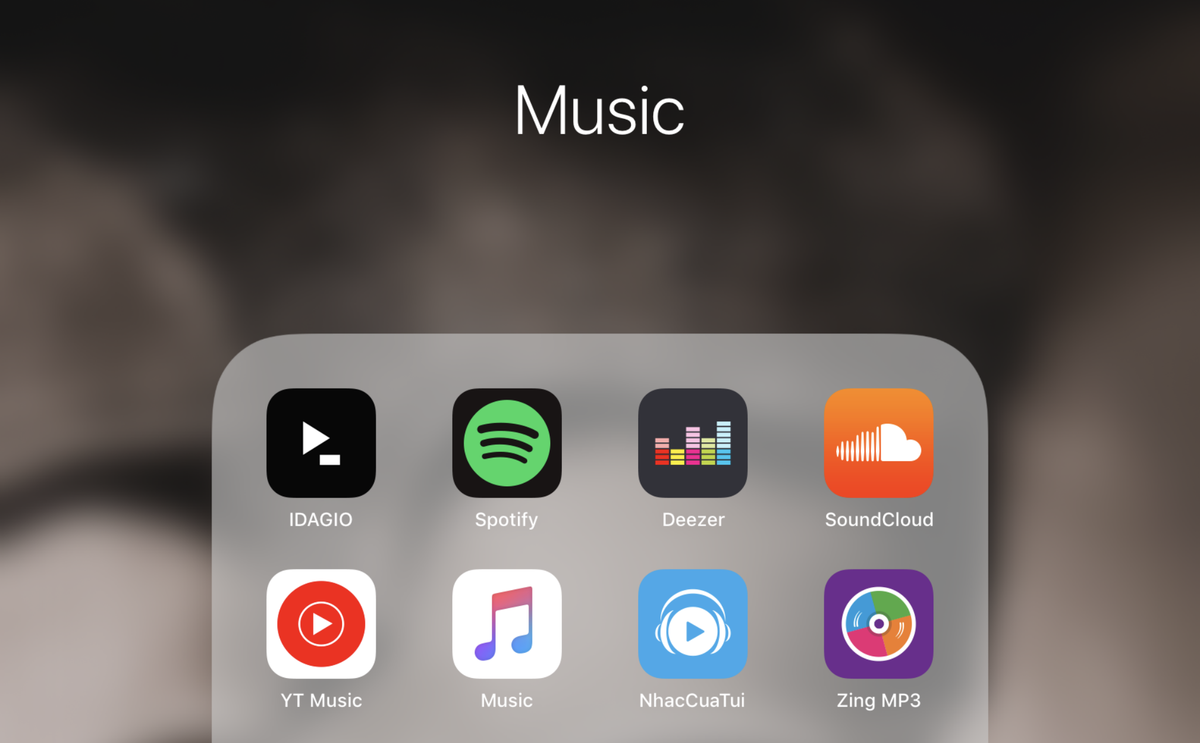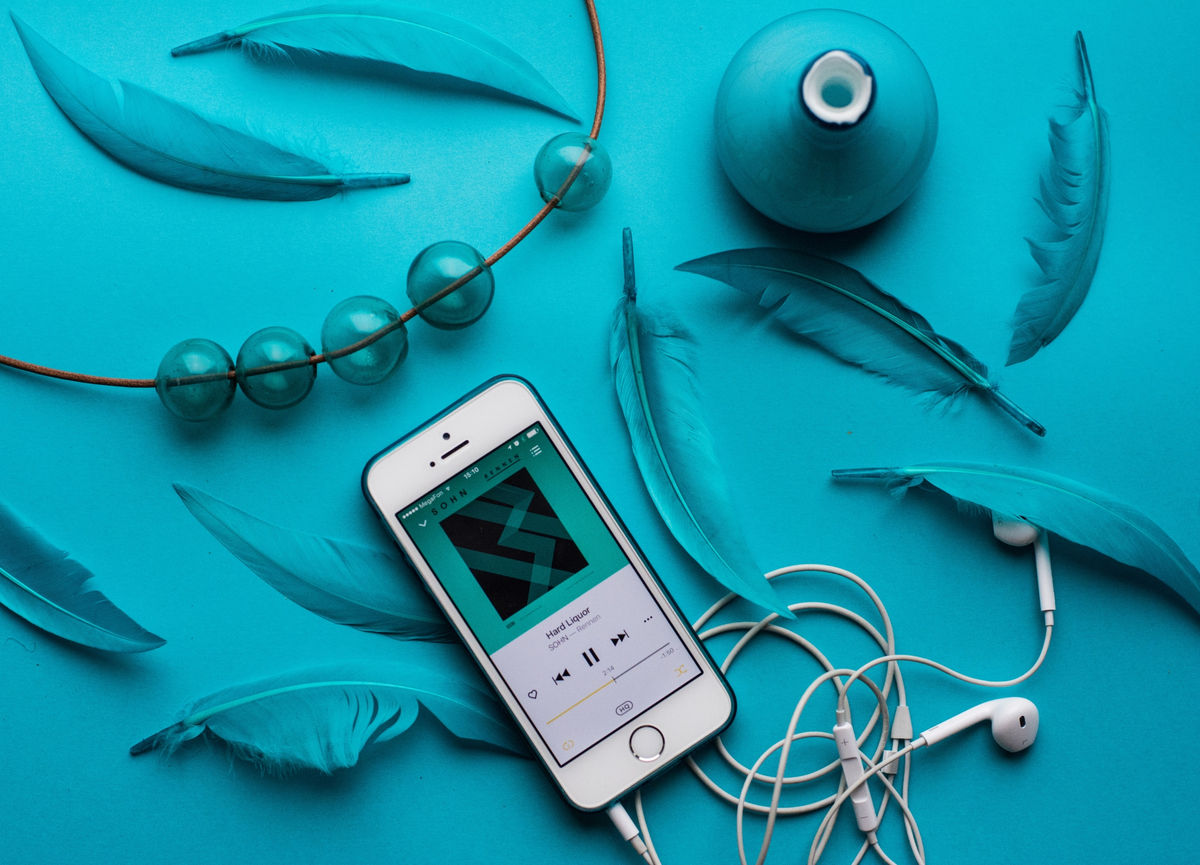I’ve recorded my drums in big and small studios, but was never truly satisfied until I tried doing it myself.
I didn’t know anything about recording – all I had were my ears and an obsession with break-beats. So I experimented, made a lot of mistakes and eventually came up with a sound I was happy with.
1- Overhead Snare Mic
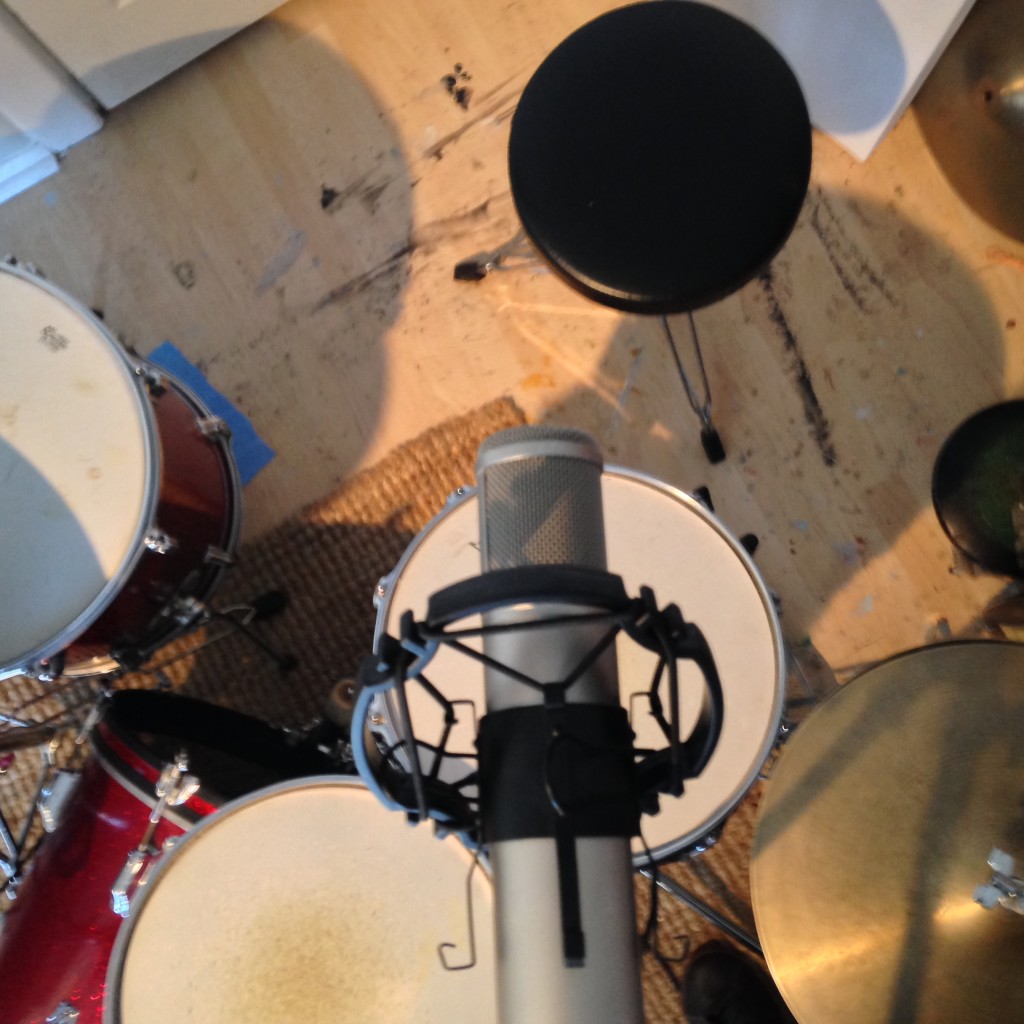
I took one large diaphram condenser mic and put it a few feet above my snare drum.
2- Floor Tom Mic
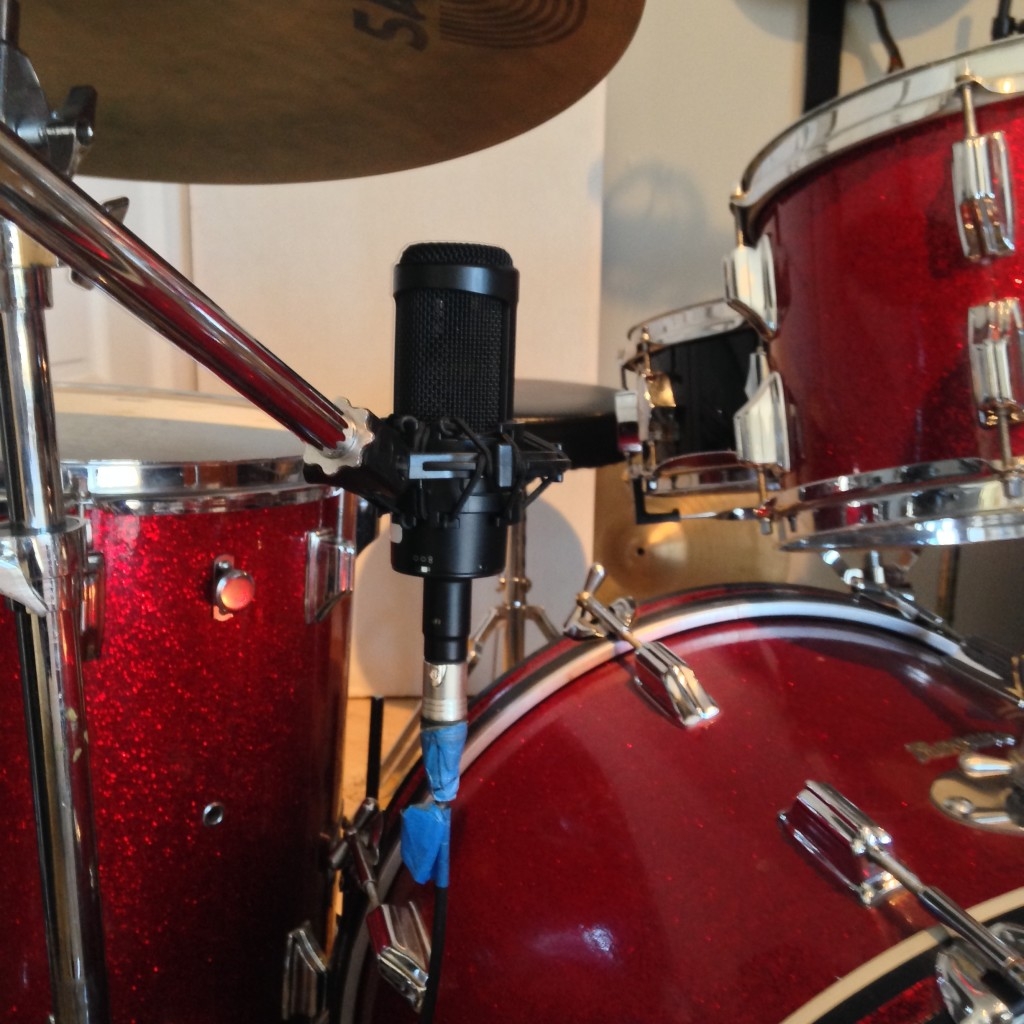
I took another large diaphram condenser mic and put it between my floor tom and bass drum.
3- Bass Drum Mic
I took one more large diaphram condenser mic and put it in front of my kick drum.
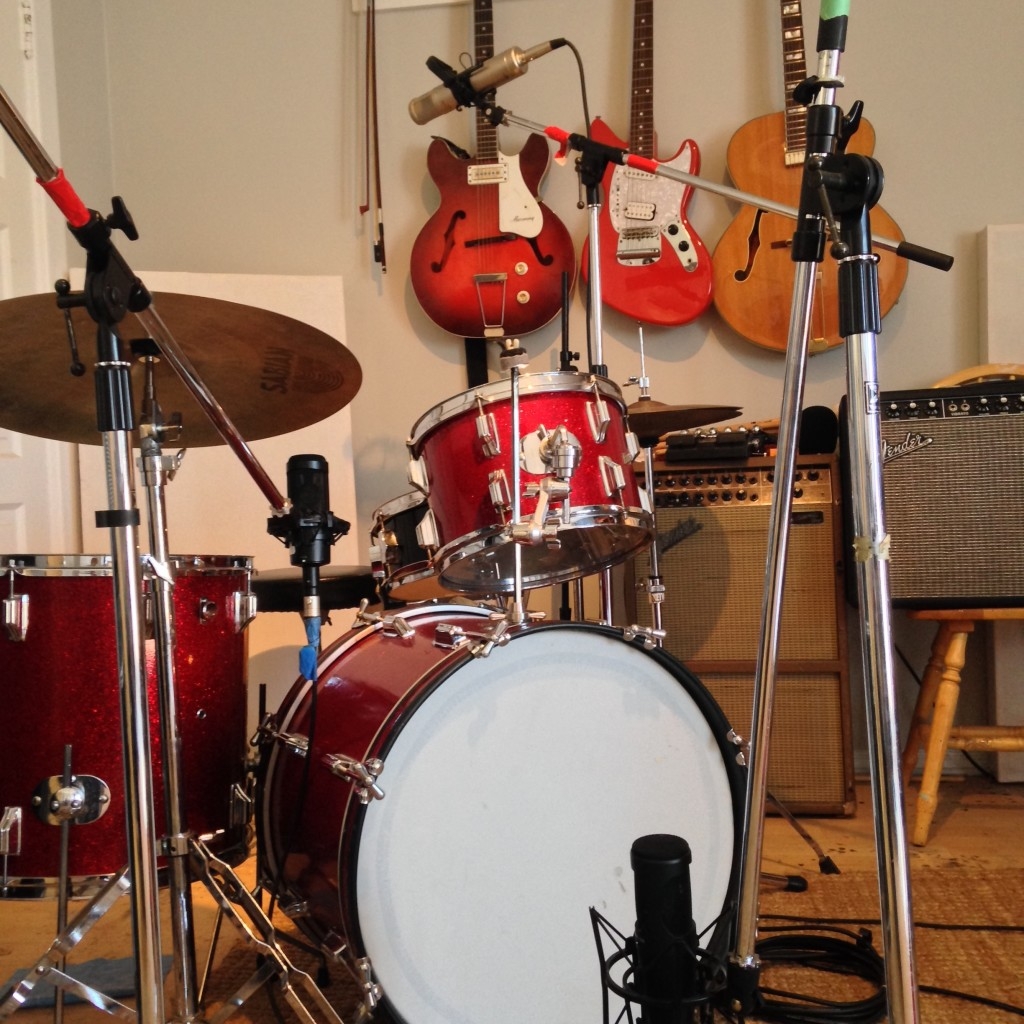
To figure out the best placement for the kick drum mic, I had a friend beat the kick heavily while I held my hand infront of the drum, I placed the mic at the point where I stopped feeling a strong airflow from the drum.
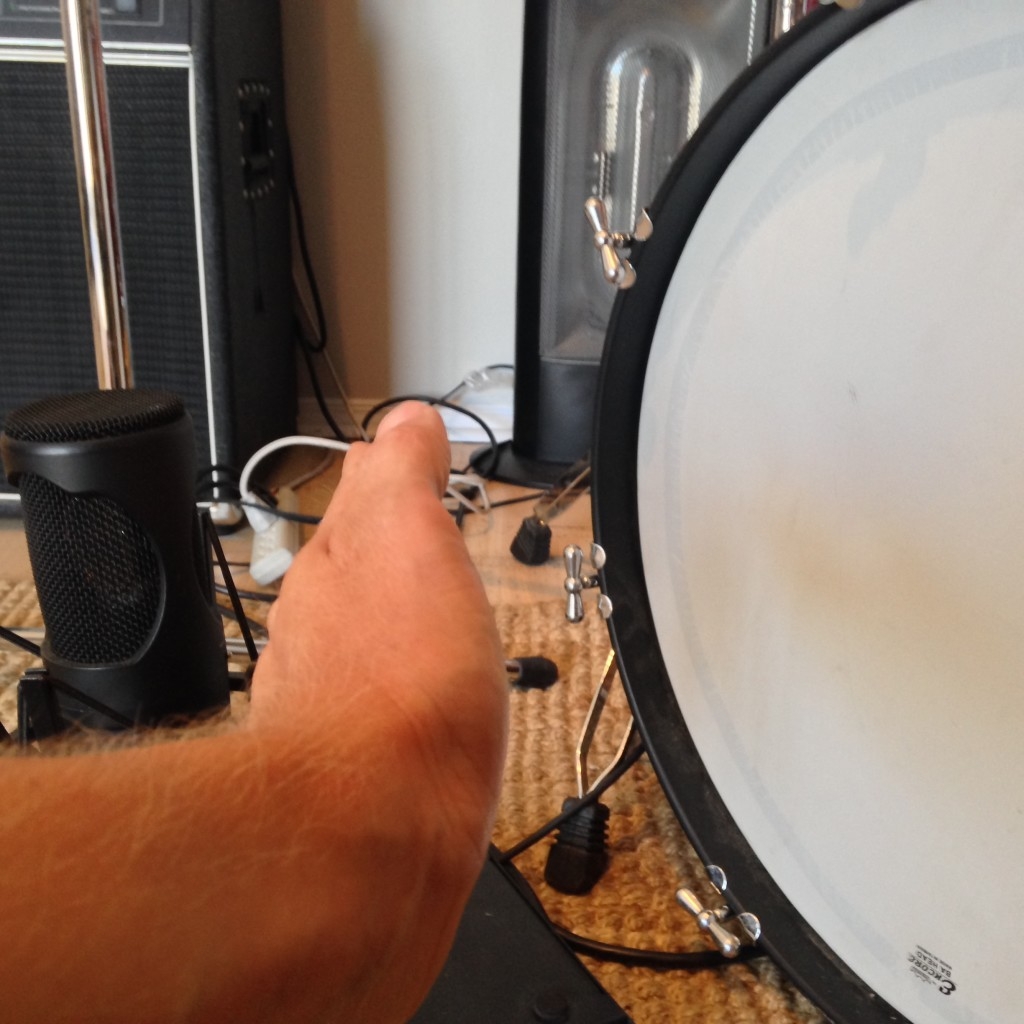
Because I’m such a technophobe I still record my drums in Garageband – the free recording software that comes with any macbook.
4- Mixing
90% of my time is spent mixing, experimenting and trying to make my recordings sound interesting and vibey.
To shape the sound I identify a ‘dominant’ mic. I pick the one that sounds best with that beat. Simple. I massage that mic with EQ, over-drive and a little 8th note delay. Then I bring in the other mics to fill out the sound.
To make the drums sound bigger, I pan the snare and tom overheads left and right, while keeping the bass drum mic straight up the centre.
5- Getting that ‘sampled’ sound
Because I like my drums to have a gritty, sampled, vibe I also run a completed drum mix through the low Kami Records setting, then I dump that beat back into Garageband and use it as another layer in my overall drum sound.
Having played drums for almost 20 years, it’s been great to finally gain some control over the way my drums sound on ‘record’. And if there’s anything I’ve learned it’s that there is no right way – it’s about experimenting until you get something you’re hyped on.
And while you are at it

